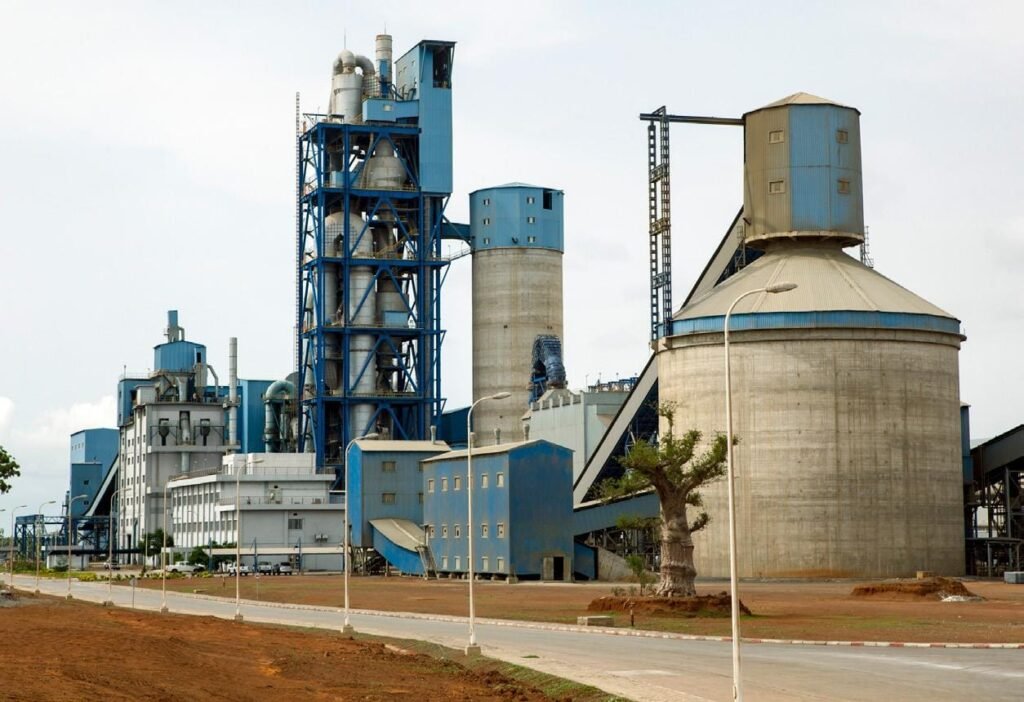Summary
- By 2025, Africa’s manufacturing sector is expected to reach a value-added output of $77.66 billion and an overall output of $284.70 billion.
- Projected Foreign Direct Investment (FDI) for 2025 is anticipated to be around 4%, with a Compound Annual Growth Rate (CAGR) from 2025 to 2029 estimated at -2.27% for value-added output and -2.84% for total output, positioning the sector as an attractive option for foreign investors.
- Highlights of Africa’s manufacturing sector include a Value-Added Per Capita of $98.25, a Value-Added Margin of 27%, an Output Per Enterprise of approximately $1.21 million, and a Manufacturing Intensity of 14.32% among 235,000 enterprises.
In-Depth Analysis
The manufacturing landscape in Africa is evolving and plays a crucial role in promoting sustainable economic growth and industrial transformation across the continent. As nations work to broaden their economies beyond raw material exports, several countries have emerged as significant contributors to industrial production, serving as a pathway for economic progress.
Experts believe that key factors driving the industrial revolution include strategic investments, supportive government policies, and increasing demand for locally-made products. Manufacturing is vital for enhancing international competitiveness, creating jobs, and supporting sustainable development through various sectors such as food processing, goods production, pharmaceuticals, and heavy machinery.
Over the last ten years, several countries have distinguished themselves by hosting the largest and most influential manufacturing firms in Africa. Below are the top 10 African nations leading in manufacturing, establishing new standards for industrial success.
10. Zambia
Zambia’s manufacturing sector is on an upward trajectory, supported by agriculture, construction, and consumer goods. Zambeef Products leads the agri-processing domain, while Trade Kings has emerged as a regional force in fast-moving consumer goods (FMCG). Government initiatives promoting local production and industrialization have contributed to this growth. Key sectors include Cement, Agro-processing, Steel, Food, and Beverages, dominated by major entities such as Zambeef, Lafarge Zambia, Trade Kings, and Dangote Zambia.
9. Tunisia
Tunisia is a vital supplier of electronics and automotive parts to European markets. Its strong textile sector is modernizing through international partnerships, making Tunisia a notable player in light manufacturing. Core sectors include Electronics, Automotive Components, Textiles, and Pharmaceuticals, led by companies such as STIP, Coficab, Poulina Group, and Socotal.
8. Ghana
Since gaining independence, Ghana has focused on value-added manufacturing in agriculture and cocoa, reshaping its industrial scene. The “One District One Factory” initiative has spurred the growth of small and medium-sized enterprises (SMEs), while established brands like Kasapreko and Fan Milk are expanding Ghana’s manufacturing presence globally. Major manufacturing plants include those for Cocoa Processing, Agro-processing, Cement, and Pharmaceuticals, operated by leading firms like Nestlé Ghana, Fan Milk, Kasapreko, and WAPCo Ghana.
7. Ethiopia
With its industrial parks and affordable labor, Ethiopia has attracted numerous global firms, particularly in the garment and textile sectors. Despite facing challenges, the country remains committed to an export-oriented manufacturing strategy, bolstered by robust government support for industrial growth. Key areas include Textiles, Leather, Cement, and Food Processing, driven by companies like East Africa Bottling (Coca-Cola), Ayka Addis, and Derba Cement.
6. Algeria
Algeria is recognized for its Cement, Automotive, Steel, and Electronics industries, combining efforts from both public and private sectors, led by conglomerates like Groupe Cevital. The country is progressing in automotive assembly and has strong foundational infrastructure enhancing its manufacturing capabilities. Prominent companies include Groupe Cevital, Lafarge Algeria, Hyundai Algeria, and SNVI.
5. Kenya
Kenya excels in manufacturing consumer goods and agro-processing. Nairobi is becoming a center for innovation in pharmaceuticals and plastics, with many firms expanding across East and Central Africa. The major sectors comprise Agro-processing, Building Materials, Pharmaceuticals, and Plastics, featuring top companies like Bidco Africa, Brookside Dairy, Devki Group, Kenafric Industries, and others.
4. Morocco
Morocco stands out as a major industrial hub in North Africa, attracting foreign investment in advanced sectors such as aerospace and automotive manufacturing. Government incentives and trade relationships with the EU render it a strategic base for exports. Key industries are Automotive, Aerospace, Textiles, and Electronics, with leadership from firms like Renault Morocco, PSA Group, Bombardier Morocco, and Managem Group.
3. Nigeria
Nigeria boasts some of Africa’s largest industrial firms, as evidenced by initiatives like the Dangote Refinery project and BUA Group’s swift expansion, highlighting its manufacturing potential backed by a large domestic market and policy improvements. Major sectors include Cement, Consumer Goods, Food and Beverages, and Oil Refining, dominated by manufacturers such as Dangote Group, BUA Group, Nestlé Nigeria, and Unilever Nigeria.
2. Egypt
Egypt’s manufacturing sector thrives on exports to Europe and the Middle East, with strengths in chemicals, cement, and pharmaceuticals. The country has established itself as a manufacturing leader on the continent, supported by various industrial reforms. Major production areas include Cement, Textiles, Pharmaceuticals, and Petrochemicals, with leading companies like Elsewedy Electric, Arabian Cement Company, Cleopatra Group, and EIPICO.
1. South Africa
Ranking first as Africa’s most industrialized country, South Africa features well-developed infrastructure and a diverse industrial base. Its international partnerships, especially in the automotive and chemical fields, solidify its position as the continent’s leading manufacturing hub projected for 2025. Key sectors include Automotive, Steel, Chemicals, and Food Processing, driven by top companies like Sasol, ArcelorMittal South Africa, Sappi, Tiger Brands, and Volkswagen SA.

